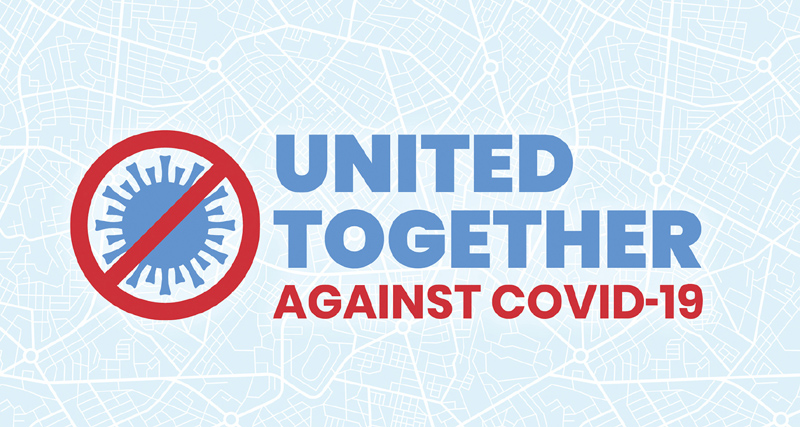The Enjoyable COVID19 Life

“It is imperative that people take care of their immune systems. A person can do this by not only caring for the physical body through diet and exercise, but also maintaining good mental health.”
– Dr. Kristen Fuller, Physician and Author
Key: Coping with the COVID19 situation will promote balanced mental health which will strengthen immunity while fostering an enjoyable life.
Living It: Focus on the moment, plan no more than three steps ahead and set your eyes on the hopeful horizon.
Clinical Concept: Applied anxiety and stress management techniques alongside reality-based Acceptance and Commitment Therapy concepts.
Our lives have changed drastically since the first week of March, when I began researching this article. We currently live in a time that I couldn’t have imagined being reality. I love science fiction, so I’ve read and watched scenes like this play out in my head or on the screen, but now science fiction has become science fact, and we must cope with that.
Our mission at KeithKarabin.com hasn’t changed. Now, more than ever, Life must be enjoyable.

According to a University of Eastern Finland study your life may depend on it. Mine, too. The study found evidence of a link between balanced mental health and a strong immune system. “This correlation makes sense,” wrote Dr. Kathrine Fuller, “considering that the immune system works to fight against physical stress on the body, and it has been shown that mental and physiological stress can manifest in physical ways.” She sited how there’s been long-standing data that depressive disorder “has a marked effect on the immune system” (Fuller, 2020). We also know that if everyday stress hits our emotional and mental centers hard, our immune system in next to fall. We’ve gone beyond everyday stress.
And that’s the end of the data.
Like I said, our lives have changed since I began researching. Objective data is crucial, and we all know I love to share it. An enjoyable life is a well-informed life. But there’s a time when we stop researching and start living; that time is now.
We must forge a new enjoyable life in the present COVID19 reality. Face it and embrace it—not just endure it—for that lifestyle will foster balanced mental health, a strong immune system and build a better post-COVID future right now.
Focus on the Present
Our collective anxieties hit the roof when the portents on social media became the news stories of the day and then the text message blasts heralding closures of schools. “It can’t happen in America” became, “it just happened.” Panic manifest in toilet paper binges, mask stockpiles and hand sanitizer hordes.

Corona Virus emptied out aisles in grocery stores and my daughter was confused. “We can take steps to stay healthy,” I told her, “but people are afraid because they can’t control what will happen, so they focus on what they can control; how much TP’s in the house.” Hey, TP is important, but there’s better ways to manage anxiety and stress. Here’s some suggestions:
– Focus on right now: Anxiety is future-focused, and the future is uncertain. Depression is past-focused, and we are apt to be frustrated, angry and sad about what we’ve lost. Neither is helpful. Like training a puppy, we can keep our brain on the now. Ask it questions like a mantra whenever you feel anxious or depressed. Are we all healthy right now? Yes. Do we have enough to survive on right now? Yes. Are we safe and happy as possible right now? Yes. With each question the brain gets re-focused and the emotions re-balanced.
– Set Expectations: Expectations create norms and responsibility. Fulfilling those make us feel good, accountable and powerful. Wake up at the same time in the morning and go to bed the same time every night. Bathe and dress (maybe relaxed, but no PJs! You’ll feel better about yourself, trust me.) Set expectations for the kids, too: Chores to do, even if it’s just putting their own dishes in the dish washer or washing their clothes. We can also make rules on anything that brings down the vibe be it digital time, complaining, whatever. We have an expectation that we don’t call it a “lock down” or “quarantine” or “restriction.” We came up with COVID19 Family time. Make up your own positive name for this time, it will help. It’s neurolinguistics.
– Structure Your Day: Many of us are working from home, and the kids are home. One of the best ways to manage anxiety is with structure. School and work provided that, yet a pervasive feeling like this is a mix of extended snow day-vacation-apocalypse-that-hasn’t-arrived may be keeping us from doing more that scrolling social media and being frustrated by Go to My PC as the kids watch videos. Instead, create your own structure. Perhaps make it written, especially if there’s children in the home. Build in the times when work and school begin, breaks and the work day ends. With structure comes security and a sense of regularity
– See Every Day as an Opportunity: America was bereft of family and home time, now we’re over-full of it. Let’s be grateful! So much science shows that a simple moment of gratitude boosts mood, cognition and productivity. We can use those expectations as teachable moments. Our kids can come out of this knowing how to wash clothes or dishes, make meals, build things and more—let’s use it now, because it won’t be forever! We have a gratitude list taped to our front door that we add to every day “During COVID19 Family Time, We’re Grateful For…” it says. Even if only the postwoman sees it, it makes a difference to us. But other neighbors have seen it, too. Maybe you want one.
Plan Three Steps Ahead
Focusing on the moment helps with anxiety and depression, but not at the exclusion of planning. Planning also helps us feel in control, decreases stress and anxiety and increases empowerment. It moves this crisis from the worry center of our brain (amygdala, for those keeping score at home) to the thinking part (prefrontal cortex). But don’t look too far ahead with your problem-solving or you will reach the unsolvable unknown and you will begin to work against yourself.
– List Weekly Needs: Going back to the mantra of self-questions, if any of them were a “No” then put it on a list. Listing reduces anxiety and increases control. Perhaps there’s not just tangible items on your list. Fun, social connection and rest are all list-worthy things. So is private time or couple’s time

– Meet Weekly Needs: Get creative. This may mean on-line ordering or shopping local. Many local businesses can’t open storefronts but will deliver to doorsteps for payment online. This is amazing service and entrepreneurship! They need you and you do need stuff. But limit over-buying. Having a house that becomes a bunker of stored goods will create clutter and a fox hole mentality which will erode your calm. Buying weekly is an abundance mindset which brings peace, hoarding is a scarcity mindset of panic. Plus, it’s damaging our economic balance. In terms of that couple’s time or private time, build it into the schedule. Maybe everyone gets an hour alone in their room. Or perhaps mom and dad get a date night while the kids get a game night in another room. The things that happened three weeks ago can still happen. Logistics may change but the core need will be met.
– Stay Social and Active: Social distancing is serious and vital for beating COVID19. It is top priority. While making it top priority, second must be finding a way to continue to connect and see the world and this now takes planning. This will keep our minds broad and thinking in a real-world community context, rather than one of isolation. Perhaps it’s virtual playdates for your kids on Minecraft or Roblox—but use a cell phone or headset so the kids can chat. Maybe it’s Zoom hangouts for the adults. Facebook Live is great for events and church—but be mindful of Facebook for negative messages. It can be a great way to build each other up, but there are also panic viruses on Facebook and Twitter and we may need to practice Social Media Distancing to stay fully healthy. In terms of activity, go outside as you feel is safe while avoiding others. This is the Ecotherapist talking. A landslide of data shows that natural connection promotes emotional, mental and physical health. Try to get outside at least once a day to remember…it’s spring! Parks are still okay if you’re away from people. A back yard is just as good. Another suggestion? Drive. Even if you don’t get out of your car, take the family for a drive. It was a norm in our lives and the feeling of getting out is both freeing and grounding, as we see that there are still some open businesses and daily life happening.
See Hope on the Horizon
“You may not always have a comfortable life and you will not always be able to solve all of the world’s problems at once but don’t ever underestimate the importance you can have because history has shown us that courage can be contagious and hope can take on a life of its own.”
– Michelle Obama, Lawyer and Author
To have an enjoyable life, we must believe in an enjoyable tomorrow. We will survive this. I am certain. And when we do, life may return to “normal.” But I hope it doesn’t. Honestly. I’ve written extensively about the over-productive, over-scheduled, too-fast American society for literal years. COVID19 Family Time (see what I did there?) has shown our businesses and our whole economy that a remote workforce is already achievable and profitable. Plus, we’ve seen that the go-to-work-every-day-even-when-we’re-sick-check-email-on-vacation employee soldier mentality which we all knew was unhealthy actually is dangerous to us all. Even our workaholic bosses.
I see a post-COVID tomorrow of shortened work weeks, more work-from-home time and a re-focus on the healthy family unit as the key to our future as a world power, rather than our GDP.
I see a future where we are more open about mental health without stigma (another passion of mine) and checking in on each other’s emotional state, as we are now is more commonplace. Where we take greater care of our neighbors’ needs, further esteem our Walmart and delivery workers (seriously, heroes!) and are more humbled by the dedication and flexibility of our educators (seriously, heroes!).
I don’t believe we will awaken, as though this shared experience was just a bad dream, and return to three weeks ago. I don’t want to. I want to head toward that hope on the horizon together.
We can do it–and boost our immune system–by focusing on the present, planning three steps ahead and living an enjoyable life right now.

Fuller, K (2020) How mental health disorders can affect the immune system. Sovereign Health. Retrieved from: https://www.sovteens.com/mental-health/mental-health-disorders-can-affect-immune-system/

 Previous Post
Previous Post Next Post
Next Post